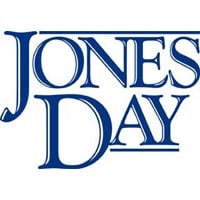
| Siemens Mobility




Siemens Mobility
Team size: Four (ASEAN), 21 (Asia Pacific)
Key team members: Suresh Balakrishnan, Anak Surasarang, Vijay A Thirunavakarasar, and Ross Tan
What are the most significant cases or transactions that your legal team has recently been involved in?
The team members have been involved in three significant infrastructure projects that are ongoing in Singapore, Malaysia and Thailand namely: Rapid Transit System (RTS) project in Singapore and Malaysia; Airport People Mover (APM) project in Bangkok; and Light Rail Transit Line 3 (LRT3) project in Kuala Lumpur.
These three projects are key transportation developments in the ASEAN region and upon completion, will serve the dense commuter network in Bangkok, Kuala Lumpur and Singapore. Concluding the contract negotiations and the subsequent contract management during the project execution phase was a lengthy, complex and highly challenging process. Each required an intense level of engagement with multiple parties; involving the customer, consortium partners, suppliers and internal stakeholders.
The RTS project will be a light rail network linking Singapore and Johor, Malaysia. Once completed, the RTS Link will significantly alleviate the traffic congestion for 350,000 commuters along one of the busiest borders in the world; reducing a commute of easily 3 hours to just 5 minutes. In 2021, Siemens Mobility was successfully awarded the project to provide a state-of- the-art signalling system, which is essentially the brain that controls the train network, and will be the first ever cross border system that equipped with such technology. It was a complex negotiation process with effectively two customers, namely the train operators of Singapore and Malaysia. Diverse legal issues such as the liability regime and the allocation of intellectual property rights had to be tackled. The contract manager supporting the ongoing project execution has had to address challenging issues relating variations and extension of time.
The APM project, involves the delivery of a ‘people-mover’ train which will transport passengers from the main terminal of the Suvarnabhumi International Airport in Bangkok, Thailand, to the satellite terminal (which is currently under construction). The satellite terminal will be able to accommodate 15 million passengers annually and will boost the airport’s annual capacity from 45 to 60 million passengers. In 2017, Siemens Mobility was awarded the contract to provide the people mover trains and the accompanying signalling system. Since then, significant contract management effort has been spent on this project because of the extensive development work required and the challenges coordinating and aligning the overall claim strategy towards the customer between the offshore technical and the onshore delivery teams.
The LRT3 project will be a line which connects Bandar Utama to Johan Setia in Klang Valley in Kuala Lumpur, Malaysia, covering a length of 38km and 20 train stations. Siemens Mobility was awarded the signalling package to provide the first fully automated line in Malaysia’s rail network (driverless, automatically controlled and supervised without any onboard intervention). Negotiating the contract was very challenging as we were subject to stringent contract terms. The ongoing project execution currently faces significant delays due to the complexity of the technical effort and the delays caused by the COVID-19 pandemic. Significant contract management effort and time has been spent negotiating with the customer and coordinating with our consortium partner and suppliers during the pandemic period.
Can you sum up the team culture or ethos?
As a starting point, a speak-up culture is highly encouraged because we believe that we should have an equal opportunity to be heard and this promotes highly engaging discussions between team members. The result is different opinions and varying approaches are visible to everyone and this provides the best platform for them to learn from each other and grow.
At the same time, growth is extremely personal, and every member is encouraged to develop their own growth goals at any point in time considering the areas which require improvement. Consequently, targets are not simply developed once at the start of each year with the intent of achieving the result in that year. These targets could have a longer time horizon, are regularly tracked and may evolve depending on the growth trajectory. This constant engagement ensures that development is aligned, highly customised and the necessary support is given each step of the way.
Pro-active collaboration is deeply entrenched in the team. Because of the setup, every project requires regular communication between the contract manager and the legal counsel. It is also common for contract managers to work across jurisdictions and in so doing, will interact with a different legal counsel on various projects. To enhance this relationship, it is a priority that the entire team meets up in-person at least twice a year as part of the wider Asia Pacific legal and contract management team for best practices sharing, to discuss new initiatives and to keep each other abreast of the projects they are supporting.
And above all, we are and have been friends for eight years; whenever we meet in-person whether in Singapore, Kuala Lumpur or Bangkok, a meal and drinks are a must.
Apart from legal matters, has the team worked on other company initiatives?
This year, the Siemens Mobility (Singapore) wanted to improve the working environment and culture for its 250 employees. Against the backdrop of its project successes, the workforce has grown exponentially from 50 employees to its current strength in 8 years; however, integration and collaboration between the departments, workload, workspaces, and employee professional development are some areas which have been neglected as a result.
Ross led a taskforce consisting of four members from other departments with the intention to transform the company’s heavy work-centric culture to one that was more inclusive, collaborative, and with a focus on the well-being of the employees.
All employees were engaged in-person and in a safe space (without their respective department heads), to provide feedback on the areas of improvement and to propose specific solutions. With the support of the department heads and executive management, the taskforce prepared detailed policies with corresponding budget proposals to amongst others, significantly increase the frequency of team building activities, redefining the workspaces, introduce structured development and recognition programmes and provide new feedback collection platforms for the employees. Employee driven committees will be established with the intent of implementing these initiatives and providing continuity to this employee engagement process.
If this initiative proves successful during the implementation process, it will be replicated in the other entities in the ASEAN or Asia Pacific region.
| Siemens Mobility
The in-house legal department of Siemens Mobility in Colombia has regional coverage as well as specific to each relevant jurisdiction. The team has adapted to the division of the Mobility...